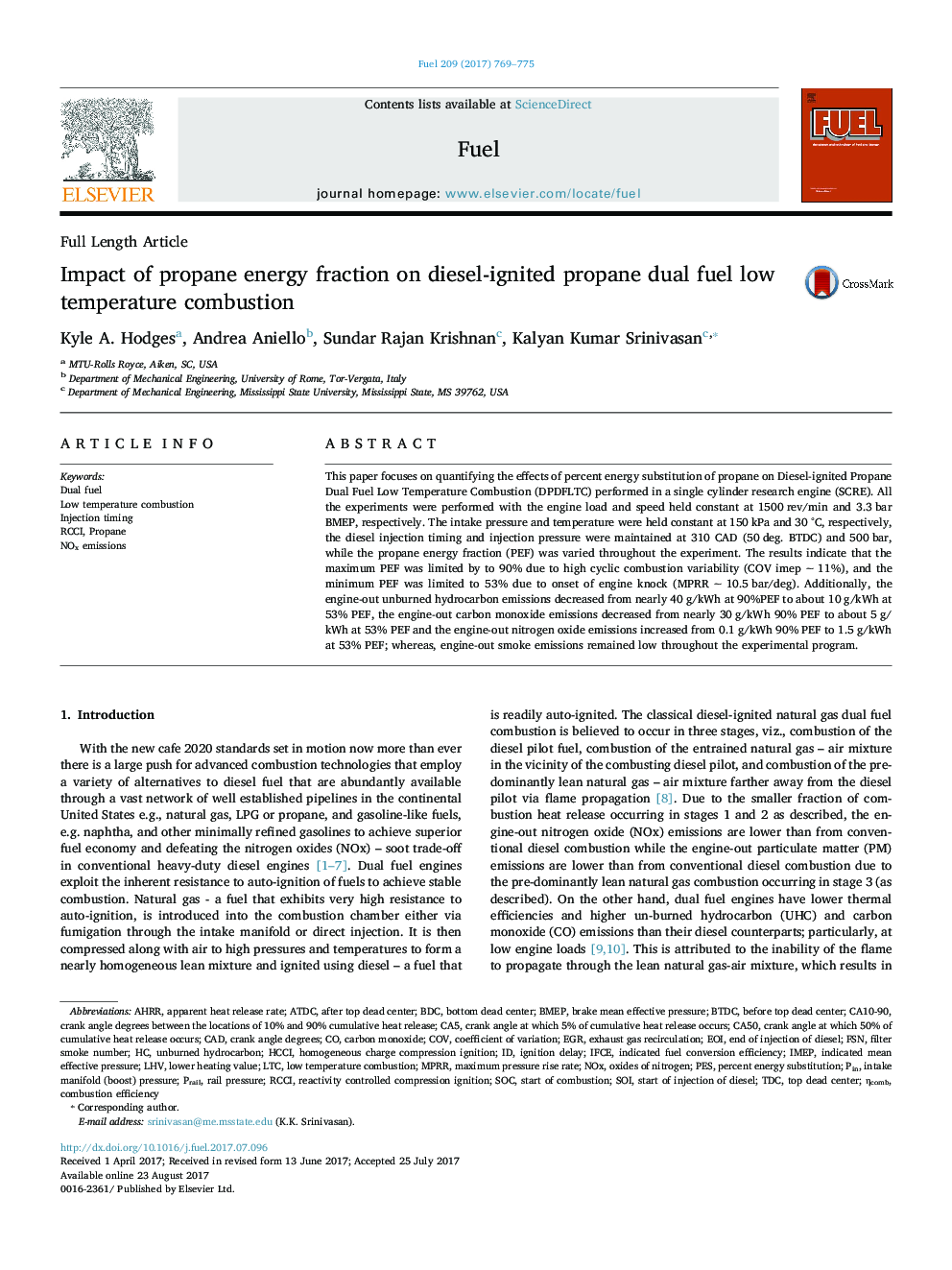| Article ID | Journal | Published Year | Pages | File Type |
|---|---|---|---|---|
| 6474016 | Fuel | 2017 | 7 Pages |
This paper focuses on quantifying the effects of percent energy substitution of propane on Diesel-ignited Propane Dual Fuel Low Temperature Combustion (DPDFLTC) performed in a single cylinder research engine (SCRE). All the experiments were performed with the engine load and speed held constant at 1500 rev/min and 3.3 bar BMEP, respectively. The intake pressure and temperature were held constant at 150 kPa and 30 °C, respectively, the diesel injection timing and injection pressure were maintained at 310 CAD (50 deg. BTDC) and 500 bar, while the propane energy fraction (PEF) was varied throughout the experiment. The results indicate that the maximum PEF was limited by to 90% due to high cyclic combustion variability (COV imep â¼Â 11%), and the minimum PEF was limited to 53% due to onset of engine knock (MPRR â¼Â 10.5 bar/deg). Additionally, the engine-out unburned hydrocarbon emissions decreased from nearly 40 g/kWh at 90%PEF to about 10 g/kWh at 53% PEF, the engine-out carbon monoxide emissions decreased from nearly 30 g/kWh 90% PEF to about 5 g/kWh at 53% PEF and the engine-out nitrogen oxide emissions increased from 0.1 g/kWh 90% PEF to 1.5 g/kWh at 53% PEF; whereas, engine-out smoke emissions remained low throughout the experimental program.
